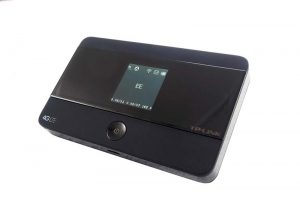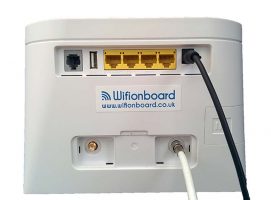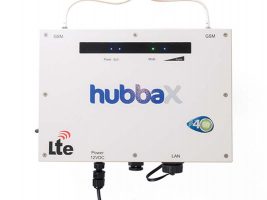The Internet has become an essential part of almost all our lives, so how can we keep connected when we’re afloat? Duncan Kent checks out various onboard methods of getting online
Cellular devices: Do you really need 4G on your boat?
If you don’t object to paying for your data then you can simply use a data-enabled mobile device to keep connected. But there’s a good chance you won’t be in a good reception area on the water, so some form of booster could be a good investment.
Do you really need 4G on your boat?
Also, if all you really want to do is stay in touch via email, there’s no point yet in spending more on a 4G-compatible device, when the slower 3G is more than adequate.
However, things move quickly in the world of technology and the changeover from 3G to 4G is happening fast. Besides, a 4G device will always work with the slower 2G and 3G networks if that’s all that’s available in the area and it should automatically select the strongest signal/platform it can detect anyway.
The simplest and probably most versatile form of booster is a mobile Wi-Fi mini-router, usually abbreviated to ‘Mi-Fi’. This is a small, portable and rechargeable cellular receiver/router that finds the strongest mobile data reception within range and locks onto it.
What are they on about? PBO glossary of terms for Wifi on your boat
Once the Mi-Fi has the signal it turns itself into a hotspot for a number of mobile devices using the regular 802.11b/g/n Wi-Fi band. It is more powerful than a phone or dongle, often a good deal faster and it’s a multi-user device – ie the Internet connection received can be shared over a number of users with Wi-Fi-enabled devices.
A Mi-Fi can also be moved about easily to find the best signal reception, provided it remains within Wi-Fi range of the users (usually 10m or so). The downside is they’re not waterproof (yet), so if you want to put it outside for the best reception you’ll need to put it inside a waterproof case.
Even using the older 3G networks, a Mi-Fi can offer downloads speeds of up to 20Mb, but the rapid spread of 4G is bringing mobile broadband at possible speeds of 50Mb or more.
TP Link M7350 4G
Price: £69.99
Contact: uk.tp-link.com

The TP Link M7350 dual-band (2.4/5.0GHz) 3/4G Mi-Fi can be bought online for around £69, including mains/USB charger and cable. The 2550mAh battery lasts between 6-9 hours from a full charge, depending on usage.
The unit has a small display and an easy-to-use, two-button menu system. It also supports the use of up to 15 wireless devices simultaneously and can take a 32Gb micro-SD storage card.
Even with just one or two bars out of four on the signal strength indicator, we attained download speeds of close to 50Mbps on the 4G network and 12.5Mbps on 3G.
Wi-Fi On Board
Price: £345
Contact: www.wifionboard.co.uk

A cellular only version of Wi-Fi On Board’s Wi-Fi router featuring a GSM (3G)/LTE (4G) antenna that offers the ability to connect to the 3G or 4G mobile data networks at up to 150Mbps download and 50Mbps upload speeds. It takes a full-size 3G/4G SIM card and features a WPS button. Like most domestic routers it is configured using a browser page – straightforward once logged in.
The device creates its own Wi-Fi hotspot for users to connect their Wi-Fi enabled devices to, or you can connect a PC directly through an Ethernet port.
Hubba X4Go/X4Duo
Price: £795
Contact: www.buzzconnect.co.uk

There are two Hubba X4 models – the X4Go and the X4Duo. The X4Go takes a single SIM and has one LAN only for connection to a PC, while the Duo has two of each, enabling it to use a second cellular network and a landline or satcomm input. Both support a Wi-Fi WAN for up to 32 devices to use Internet via the 4G network. It has two MIMO antennae with short cables, but two 8m extensions are provided. In trials the X4Go powered up right away and instantly connected to our laptop. A quick test using the 4G network proved it to be lightning fast both downloading and uploading.




